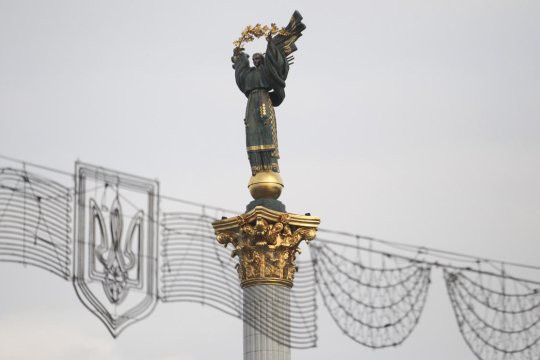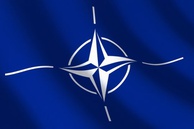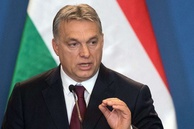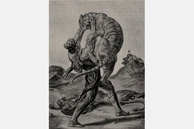According to the results of a sociological survey which was conducted by the group “Rating” (Ukraine), 44% of Ukrainians signal readiness for compromise at talks with Russia, more than 50% of respondents said so in the east of the country.[i] 48% call for waiving talks in favor of fighting until the liberation of territories. Last winter and summer the latter opinion was backed by 60%.
In accordance with the outcome of a telephone poll run by the Kyiv-based International Institute of Sociology (KIIS) “The Dynamics of Perceiving Russia’s Reserve Strength in the War Against Ukraine” (September 29 – October 9)[ii], the number of those who think that Russia has enough resources and can wage a war against Ukraine for years ahead increased (twofold!) in October this year, as compared to February: while in winter the number of people who think so was 22%, now it has increased to 49%. The number of those who think that Russia is using up its resources and that the war may end on the conditions favorable for Ukraine in the foreseeable future, has decreased from 67% to 43%.
As for whether Russia has the resources for a long-running confrontation with Ukraine, the opinion of Ukrainians differs depending on the region:
- In Western Ukraine, 57% believe that the Russian resources are depleting, even though a substantial percentage (37%) tend to think that they are still huge;
- In Southern and Eastern Ukraine, the opinion that Russia’s resources are really vast prevails, especially in the south (58%) and the east (67%), whereas 32% and 26% accordingly think that Russia is exhausting its resources.
Thus, compared to February 2023, those who believe that Russia has a considerable reserve of resources outnumber those who oppose this view in all regions of Ukraine. Such an opinion has become particularly widespread in the south (from 25% to 58%) and the east (from 19% to 67%).
The conclusions are evident – residents of areas which are remote from the frontline and are considered the cradle and source of nationalist ideology for entire Ukraine mainly believe that Russia’s resources are running out. The same numbers in the south and more in the east believe the opposite, largely due to the fact that these areas are close to the frontline, so residents of south-eastern areas see the situation in a more realistic and less ideologized light.
Under another survey by “Rating” which took place in November, Ukrainians have divided into two equal parts on the issue of how the conflict should be ended, with the number of those who favor a war until victory decreasing:
- 44% of respondents argue that it is essential to seek a compromise at talks to be held with the participation of other countries.
- 48% call for waiving talks and fight until the liberation of territories. Last winter and summer the number of people who think so amounted to 60%.[iii]
The description of the current state of Ukrainian society is presented in a separate survey about perception of threats and expectations of the winter 2023-2024 as part of the 25th wave of national poll “Ukraine in the Context of War”[iv], however, the results will become more illustrative in the analysis of public sentiments as related to the developments.
Expectations of winter
- Half of the respondents believe that on the whole, the situation in Ukraine in winter will remain unchanged (51%). Another 25% expect the winter to yield improvement, 21% expect aggravation. Residents of central areas are more positive about the future – about one third of respondents expect things to become better.
- Expectations concerning the situation on the front are the most optimistic:46% expect an improvement. Pessimistic forecasts mainly concern the economy: 34% of respondents expect an economic downturn, 43% - expect no changes. The situation in the energy sector is viewed as improving (17%) or remaining intact (43%).
- Comparative estimates of potential power supply in the winter are positive: the respondents say that the situation should get better, compared to last year (41%), or will be the same as last year (49%). As for residents of frontline and de-occupied territories, 54% in both categories believe that power supply will remain the same as last year, whereas residents of central and western regions have more optimistic expectations and hope that the situation will become better.
Preparations for winter
- Nearly 75% of Ukrainians were preparing for possible power supply problems in the winter. They were planning to stock up on torches and batteries, on food products, on electrical accumulators and generators, and on drinking water – more than half of the respondents said they had acquired all the above-mentioned.
Social consolidation
- According to the respondents, last year Ukrainians were more consolidated than now. Unlike last year, when 87% of respondents believed that the nation is united, now only 64% think so, and next year the percentage is expected to drop to 59%. At present, 34% of respondents say that Ukrainians are not consolidated, last year only 11% thought so.
Now, we will examine if society sentiments are related to facts and reality, and whether they match expert estimates.
Expectations of winter:
- October. Ukraine was unable to fully restore the energy infrastructure, which became less reliable and more vulnerable than last winter, Reuters reported, citing Marcus Lippold, advisor to the European Commission on energy and the environment in the Ukraine support group of the General Directorate of the neighborhood and expansion mission (DG NEAR). Even though experts performed major repairs on the infrastructure in the summer, the industry did not have either time or funds to complete the repairs by the winter. As a result, millions of Ukraine’s residents will face shortages of electricity, heating and water supply in the coming winter, and the economy and businesses will experience considerable difficulties.
“The energy system is unreliable and is low on reserves”, - Reuters cites “Ukrenergo” Board Chairman Vladimir Kudritsky. Dmitry Sakharuk, the CEO of DTEK, a major private-sector energy company in Ukraine, has reported that the company has carried out extensive repairs in the run-up to winter but owing to substantial damage, “the level of the reliability [of the electric grid] will be lower [than last year]”.
The Ukrainian energy infrastructure has sustained enormous damage – according to UN estimates, its energy facilities, estimated earlier at 37 gigawatt (GW), have shrunk by 19 GW – more than twofold against February 2022. Unlike before, when the country relied on mild climate, fast repairs of damaged infrastructure, nuclear energy and power imports from Europe, this winter “the conditions are expected to be more severe”.[v]
- November – early in November saw emergency power cuts in Kyiv and beyond. More than 16,000 buildings were cut off from power supply. At that time, according to the press service of the DTEK energy holding, more than 200 buildings were left without electricity in Kyiv, and 16,000 – in the Kyiv Region.[vi]
- The state of the energy system was assessed by Director of the Ukrainian Energy Research Center Alexander Kharchenko. In his opinion, about one third of Ukrainian thermal power plants operate on worn-out equipment, which is scrap material: “Half of power generation is inaccessible, while what is accessible is divided into categories. In some places, 65-70% [of TPP facilities] are more or less operable, while the rest is scrap metal, which is switched on and off. This goes on and on for years”. Kharchenko added that without power supplies from the EU Ukraine would have long faced mass power cut offs among the consumers. At temperatures minus 12 - minus 10, consumption volumes soar to an extent that even imports cannot help, which is fraught with cut offs, the expert pointed out.
On November 22, at peak consumption hours in the evening, there appeared a deficit of power in grids, which was covered by emergency supplies from abroad, all seven TPP power units joined the emergency repairs in 24 hours. Ukrenergo reported that the country’s energy system had for the second day running registered a deficit of power due to increased consumption in connection with the cold season. The Ukrainians were urged to save power. [vii]
On December 7, when the long-running cold season had not arrived yet, when problems experienced by the Ukrainian energy system should set Kyiv worrying – Ukrenergo reported a deficit in the country’s energy grid: “Today the cooling has led to a boost in consumption. This caused a deficit in the energy system….In order to avoid cut offs and maintain a balance in the energy grid the Ukrenergo Call Center had to attract emergency assistance from power supply operators in Slovakia, Rumania and Poland, from 11 to 19, with a capacity of 700 MW”.[viii]
Ukraine’s and the allies’ military and political expectations of the winter can be determined by the results of a meeting of the Rammstein Contact Group, which was held online on November 22.
It looks like major agreements concerned air defense forces ahead of the winter: the new military aid package from Germany will include one Patriot, and IRIS-T systems with remote-controlled missiles. Ukraine’s Defense Minister Rustem Umerov has said that a new “coalition of ground-based air defense forces” has been formed, comprising 20 countries, with Germany and France as leaders.
In all likelihood, priority №1 is to guarantee uninterrupted operation of power plants for the winter, experts and Ukrainian media conclude.
New York Times has come up with a publication which says that the Ukrainian energy system has become more fragile than a year ago.[ix] It was not fully restored following the Russian attacks last year, and the reserves are not sufficient, particularly the transformers are in short supply. Power generation, as expected, remains at half the pre-war level, that is, at the level to which it had been restored by April. The American edition points out that damage to the Ukrainian power grid would thwart Ukraine’s plans to launch military production, which requires plenty of electric power.[x] In a word, Ukraine is experiencing such a shortage of power that only foreign assistance can compensate for it.
According to the survey “The Dynamics of Ukrainians’ Approach to International Alliances (22-23 November 2023)”[xi], the participants in the referendum would support membership:
- in NATO – 77%
- in EU – 78%.
The most interesting result comes from the question “What do you think about membership in NATO within the borders currently under the control of Ukraine?”:
- “More against” and “Categorically against” - 53%.
- “Fully support” and “Sooner support” - 40%.
Thus, the Ukrainian society has split again on the future prospects for Ukrainian state.
And now the reality. Speaking at the last “NATO-Ukraine” meeting, the Hungarian Foreign Minister Peer Szijjarto said: “NATO has reached consensus on the fact that Ukraine’s integration in the alliance is currently out of the question, because in reality, it would signify the start of a third world war”.[xii] As it happens, NATO has never wanted Ukraine as a member – neither in the borders of 1991, nor in the condition of permanent disintegration.
Judging by the moves of the EU countries, the Ukrainians are equally unwelcome in such a dream organization as the European Union. In addition to the existing differences on Ukraine’s membership, the situation in the European Union has been deteriorating owing to a string of economic, migration and political crises. Financial Times reports a new threat of allocating 50 billion euros by the EU to Ukraine.[xiii] The problem is not that Hungary has consistently been blocking Kyiv’s membership bids. Besides the position of Budapest, EU member countries are still unable to agree on replenishing the joint budget in order to allocate funds to support Ukraine. Also, reaching a compromise has become more problematic following the victory of the extreme right at the elections in the Netherlands and the recent ruling by a German court to impose restrictions on government loans. German and “other states” have said that they will not channel to the EU any additional funds except those necessary for Ukraine. The rest require extra funding for tackling domestic problems, such as migration. The Financial Times resume: “Failure to approve long-term financing, a separate mechanism to allocate 20 billion euros for the purchase of weapons…..will deal a blow on Kyiv after the failed summer counter-offensive and growing concerns over dwindling assistance from the West”.
Ukraine’s presidential advisor Mikhail Podolyak comments on the situation: “The society, as we see, has accumulated a large amount of frustration – first. Second: the society has plenty of hard-to-answer questions – how, where, what for, at what price. The society has accumulated loads of information that not all top government officials, local government representatives invest in the war in the same way as the society proper. I mean corruption, conduct, occasional strange-sounding statements. All this falls a heavy burden because a breakthrough on the front did not happen”.[xiv] A rare case of Podolyak making a realistic review of the situation, unlike his previously wild or distorted interpretations of history or propaganda statements aiming at visionariness.
Sociological surveys in Ukraine register expectations which are not based on the reality. Moreover, the latest developments signal the unlikeliness of Ukraine being granted membership in either the EU, or NATO. Unlike before, when Euro-Atlantic expectations of Ukrainians based on the Euro-Atlantic populism of politicians, now, nearly in the second year of the armed confrontation, the Ukrainian society cannot grasp the fact that Ukraine’s readiness “to die for the West” has done nothing to bring the country closer to the Euro-Atlantic structures. What the Ukrainians need to understand is that Ukraine is unable to do anything without foreign assistance: it can neither wage a war – because a war requires foreign weapons and munitions, nor hold elections – they require funds, nor provide the country with electric power – it requires the import of energy and equipment. All this is the result of serving the West, which views Ukraine only as a proxy force against Russia, not as a state that is set to become part of it.
The opinion of the author may not coincide with the position of the Editorial
[i] https://ctrana.news/news/452009-dannye-oprosa-ukraintsev-kak-zavershit-vojnu-s-rf.html
[ii] https://www.kiis.com.ua/?lang=ukr&cat=reports&id=1304&page=1
[iii] https://ctrana.news/news/452009-dannye-oprosa-ukraintsev-kak-zavershit-vojnu-s-rf.html
[iv] https://ratinggroup.ua/ru/research/ukraine/dvadcyat_piyate_zagalnonacionalne_opituvanny_spriynyattazagroz_na_zimu_2023-2024.html
[v] https://tass.ru/ekonomika/18928473
[vi] https://tass.ru/ekonomika/19377661
[vii] https://tass.ru/ekonomika/19372445
[viii] https://crimea.ria.ru/20231207/defitsit-v-energosisteme-kiev-prosit-pomoschi-slovakii-rumynii-i-polshi-1133366883.html
[ix] https://www.nytimes.com/2023/11/22/world/europe/ukraine-power-grid-russian-airstrikes.html
[x] https://ctrana.news/news/451198-itohi-638-dnja-vojny-v-ukraine.html
[xi] https://ratinggroup.ua/ru/research/ukraine/dvadcyat_piyate_zagalnonacionalne_opituvanny_dinamska_stavlennya_ukrainciv_do_mizhnarodnih_soyuziv.html
[xii] https://tass.ru/mezhdunarodnaya-panorama/19404807
[xiii] https://ctrana.news/news/452023-evrosojuz-ne-sohlasoval-sovmestnyj-bjudzhet-chtoby-vydelit-ukraine-50-mlrd-evro.html
[xiv] https://t.me/stranaua/134051
read more in our Telegram-channel https://t.me/The_International_Affairs

 15:37 14.12.2023 •
15:37 14.12.2023 •



























